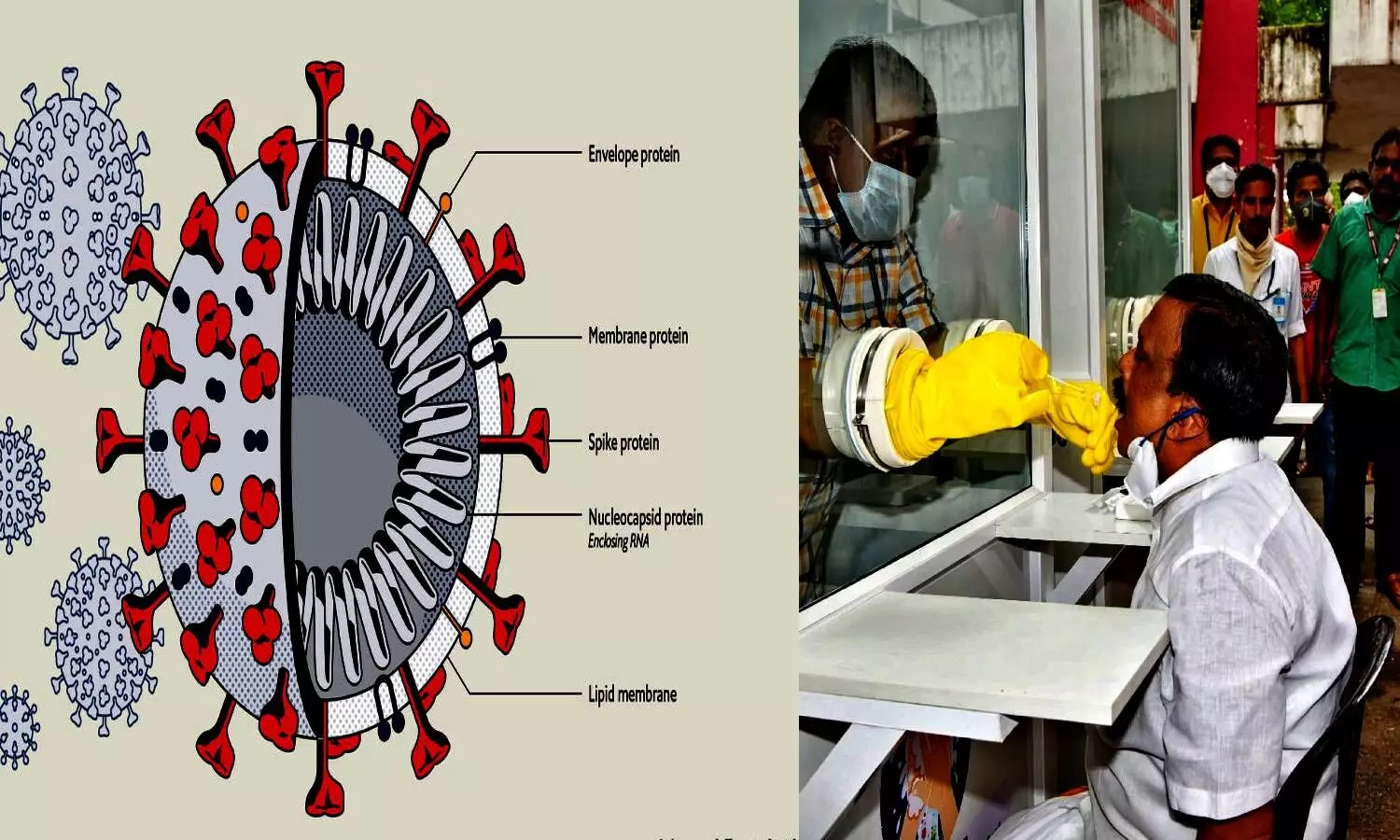`Spike Protein' of virus remains same even if person is reinfected by COVID 19: CCMB study
A new study has revealed that Spike Protein of the virus remains the same even if the person is reinfected by COVID 19.
By Sumit Jha
Hyderabad: A new study has revealed that Spike Protein of the virus remains the same even if the person is reinfected by COVID 19.
Conducted by the Center for Cellular and Molecular Biology (CCMB), the research has provided evidence of a rare but distinct possibility of reinfection without changes in the Spike Protein.
Reinfection is the second infection that follows the recovery from a previous causative virus.
According to CCMB, reinfection takes place for two reasons: A person has not developed an immune response or antibody and any other protection from the virus, so the same virus can come and infect us again. Another possibility is that the virus has changed so much that the immune system doesn't provide protection from the new virus.
"Both of these are possibilities. We get common flu because of the second reason. Each year the virus changes and we get the infection," said Dr. Rakesh Mishra, Director CCMB.
Dr. Rakesh Mishra noted that the reinfection has been very less. "If there is reinfection, we isolate and see if there is a change in the sequence of the genome. There will be mutations that show it is a new infection, not the previous infections. Sometimes previous COVID19 infections flare up again in the body. There are cases where the infection has not been cleared even after weeks and sometimes months. It means infections are not going and staying in the body and a person is not able to overcome it for a long time," he added.
The CCMB presented two cases of reinfection of COVID19:
Case 1:
A 61-year-old, apparently immunocompetent, male healthcare worker tested positive for SARS-CoV-2(CPVID19) using RT-PCR as part of the contact tracing on August 31, 2020. After an episode of asymptomatic infection and home quarantine, he tested negative. With no travel history in between, he complained of weakness in the second week of November and developed a cough two days later. He again tested positive for the virus on November 14, 2020. There were no other symptoms during this episode, and it was a mild disease overall. Sequencing revealed the presence of 10 unique variations in the viral genomes. No variation was observed in the Spike protein. "This is the first reason where the person has not developed an immune response or antibody and any other protection from the virus. The person is immune deficiency and uses Immune suppressor. That is why the immune system is weak. The virus is so different that it has been reinfecting again," said Dr. Rakesh Mishra.
Case 2:
A 38-year-old male admitted to the hospital with symptoms of headache and fever tested positive for SARS-CoV-2(VOVID19) using RT-PCR on 4th November 2020. After a day of symptoms indicated above, the patient was symptom-free. On November 22, 2020, the patient had a fever again. Sample collected on that day tested positive for SARS-CoV-2. Other than 5 days of fever following the test, there were no symptoms during the second episode. There was a history of steroid usage for a diagnosis unrelated to COVID19 (Tuberculosis meningitis). Subsequent analysis revealed the presence of 3 unique variations between both the episodes and a large number of shared variants. One of the unique variations in episode 2 was in the Spike protein; however, it was a synonymous change. This is the case of the COVID 19 virus that remains in the body of the person and gets reinfection.
CCMB said while case 1 is clearly reinfection backed by a negative test between episodes and 10 unique variations between the viral strains, case 2 remains a bit unclear. Three unique variations in 18 days is higher than expected based on current estimates, but cannot rule out the possibility of prolonged viral shedding and accelerated viral evolution due to an immunocompromised state. However, in both cases, no variation in genes was identified between reinfections.
Our latest work on SARS-CoV-2 reinfection is now online, published in Clinical Infectious Diseases. Congrats to the team! https://t.co/V430y8Us2u pic.twitter.com/ENBY8C9ZgD
— Divya Tej Sowpati (@TejSowpati) February 16, 2021
"The fear of new variants will become very different and reinfection will become very common. We have not seen so far," said Dr. Rakesh Mishra.